Organic vs. Conventional - Does it really matter?
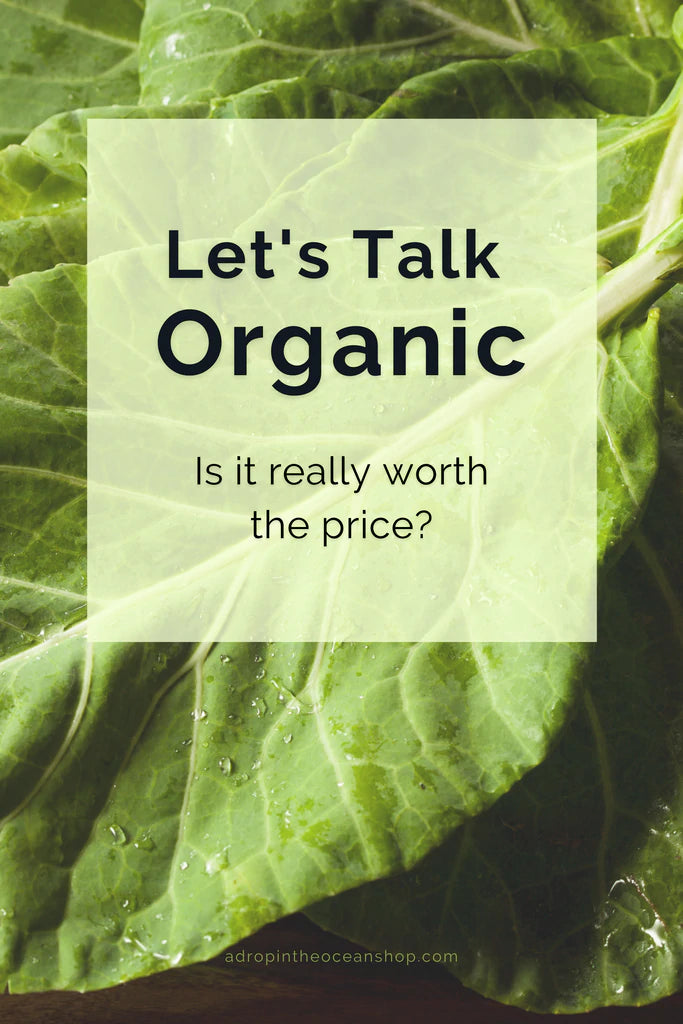
Let’s talk about eating organic, shall we, my friend?
There’s a lot of information surrounding organic foods and whether or not they’re actually “better” for us - “us” being both ourselves and our planet. Understandably, this can cause confusion and distrust.
I’m hoping today not to clear up all of the confusion, because even the scientific community does not have a clear consensus, but instead provide some straightforward insight to why I choose organic when possible.
So, first and foremost, what the heck does organic mean?
According to the USDA (look for their certified organic label):
“The USDA organic regulations describe organic agriculture as the application of a set of cultural, biological, and mechanical practices that support the cycling of on-farm resources, promote ecological balance, and conserve biodiversity. These include maintaining or enhancing soil and water quality; conserving wetlands, woodlands, and wildlife; and avoiding use of synthetic fertilizers, sewage sludge, irradiation, and genetic engineering.”
All sounds great, right? As I’ve mentioned, however, it’s not as straightforward as we may think. Here’s a few common questions about organic produce, answered.
Is organic produce healthier?
There is zero conclusive evidence to support the notion that organic produce is healthier for us or tastes better.
Does organic produce use zero pesticides?
Not quite. Certain pesticides are still permitted in organic farming.
However, these pesticides are generally considered to be less harmful to humans and to the environment than their conventional counterparts. This isn’t a perfect solution, though. A blogger I greatly admire, Waste Free PhD, shares the below information about an organically-approved pesticide. (Her full blog post on organic vs. conventional is definitely worth a read.)
“A testament to the statement ‘natural doesn't mean safe / environmentally friendly,’ is the naturally-derived insecticide pyrethrin, which is derived from the chrysanthemum flower.
By comparison to some other insecticides, such as chlorinated hydrocarbons, organophosphates, and carbamates, pyrethroids have a relatively low toxicity to humans. Pyrethroids excite the nervous system of insects, causing paralysis and death.
Though they have low toxicity in humans, pyrethrins are highly toxic to fish and honey bees. Studies have found pyrethrins to exhibit reproductive toxicity in fish and aquatic insects.”
So, while organic pesticides are overall considered less harmful, it’s important to recognize that, like all things sustainability, nothing is black-and-white. We can only choose the best option available to us, and continue to advocate for further research and better options.
Is organic farming less efficient than conventional?
Yes and no. In the current state, conventional farming can produce higher crop yields on smaller plots of land. But there’s ecological harm in that efficiency.
Conventional farming typically involves monocropping - or growing the same crop year after year on the same plot of land. This strips the soil of specific nutrients that that individual crop needs the most. Over time, this leads to elevated needs for fertilizers, which can only be effective for so long before the topsoil is rendered completely inefficient.
Organic farming, on the other hand, typically involves rotating crops, which gives the soil a chance to recover, to replenish the missing nutrients. This can also give way to greater biodiversity in the soil, and create lasting healthy soil.
In his TEDx talk, “Why is organic food so *#@! expensive??”, Ali Partovi also notes that organic farming can take advantage of natural synergies - for example, sheep and asparagus.
“Sheep love to graze, but they do not love the taste of asparagus. And so, when the asparagus farmer has a weed problem, rather than spending a lot of money buying a chemical herbicide so spray on the field, they can invite in a sheep farmer. The sheep will clear the weeds, the sheep farmer gets free pasture for his or her animals, and the asparagus farmer gets free weed control. And, the sheep add fertility to the soil.”
Like, um, what?! How freaking cool is that. It makes me want an asparagus farm with a neighboring sheep farm. Who’s with me?!
So, although it may seem counter-intuitive, in the long run, organic farming could actually be more productive than conventional.
Is organic food more expensive?
Well, yes. And when money is tight, as it is for so many of us right now, this is a severely limiting factor. If you’re able to make some swaps to organic but maybe not go all-in, I suggest starting with the Environmental Working Group’s (EWG) “Dirty Dozen” and “Clean Fifteen” lists.
Each year, the EWG tests 47 different produce items to determine their levels of pesticide residue. They do so after the produce has been prepared for consumption, including thorough washing and, when applicable, peeling. They then rank the worst twelve produce items (the “Dirty Dozen”) and the best fifteen (“Clean Fifteen”).
The 2019 results are below.
Dirty Dozen
1. Strawberries
2. Spinach
3. Kale
4. Nectarines
5. Apples
6. Grapes
7. Peaches
8. Cherries
9. Pears
10. Tomatoes
11. Celery
12. Potatoes
13. (bonus) Hot Peppers
Clean Fifteen
1. Avocados
2. Sweet Corn
3. Pineapples
4. Frozen Sweet Peas
5. Onions
6. Papayas
7. Eggplants
8. Asparagus
9. Kiwis
10. Cabbages
11. Cauliflower
12. Cantaloupes
13. Broccoli
14. Mushrooms
15. Honeydew Melons
These are great guides for helping us to determine which produce items we should prioritize buying organic and which we can confidently stick to conventional.
Organic on a Budget
Another great resource to keeping our budgets balanced while choosing organic is Imperfect Foods. I’ve mentioned Imperfect Foods before, but I’m going to mention them again (and probably many more times).
Imperfect Foods is a grocery delivery service on a mission to eliminate food waste and build a better food system for everyone. “Imperfect” foods have been deemed surplus, may look a little different than we’re used to (maybe a small egg or a misshapen carrot), or were victim to a packaging change that kept them from being put on the shelves at a grocery store.
Imperfect rescues these items from being sent to landfill and delivers them straight to your doorstep at a discount, typically around 30% lower than traditional grocery store prices.
Choose your box size, delivery frequency, and whether you prefer conventional or organic produce (or both!), and before each delivery you’ll get the option to completely customize what goes in your box, so you’re not stuck with something you won’t eat.
It’s the conventional vs. organic preference that has earned Imperfect a spot in this week’s post.
My pre-set box preference is both conventional and organic, but each week I have full control to choose more or less organic options than the default - and the prices are often so close between conventional and organic it’s hardly noticeable (I’m talking like maybe a few dimes difference).
Most weeks, my box is less than $30 for a fridge full of produce.
I highly, highly recommend Imperfect Foods. If you want to give them a shot, use this link (or the one above) to get $10 off your first box.
In full disclosure, I will also get $10 off if you use one of these links. I promise I will never promote a product or service that I do not use myself and support 100%. Imperfect is doing amazing work. They did not ask to be promoted, I simply believe in this service so much I wanted to share it with you.
In summary...
So, friend, while eating organic may not be much different than eating conventional from a health standpoint, the principles of organic promote equity, eating fresh and in-season, and maintaining a healthy environment - not just for us as the consumers, but also for the producers.
I hope that this has cleared up a little bit of the confusion surrounding the term “organic.” I know I learned a ton just doing the research for this post. Some of the resources I used are linked below, if you want to dig a bit deeper.
Stay healthy, friend, and I’ll talk to you soon.
Sources:
Introduction to Organic Practices - USDA
Is Organic Produce Worth the Premium Price? - Waste Free PhD
Organic 101: What The USDA Organic Label Means - USDA
Organic Agriculture - USDA National Institute of Food and Agriculture
What are the environmental benefits of organic agriculture? - Food and Agriculture Organization of the United Nations
What Does “Organic” Mean, and Should You Buy Organic Foods? - SciShow
Why is organic food so *#@! Expensive?? -- Ali Parvoti TEDx Talk
Related:
10 Ways to Reduce Your Waste Without Spending a Dime
12 Things I've Stopped Buying Since Going Zero Waste


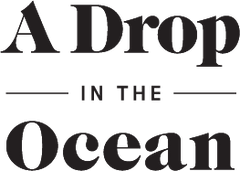


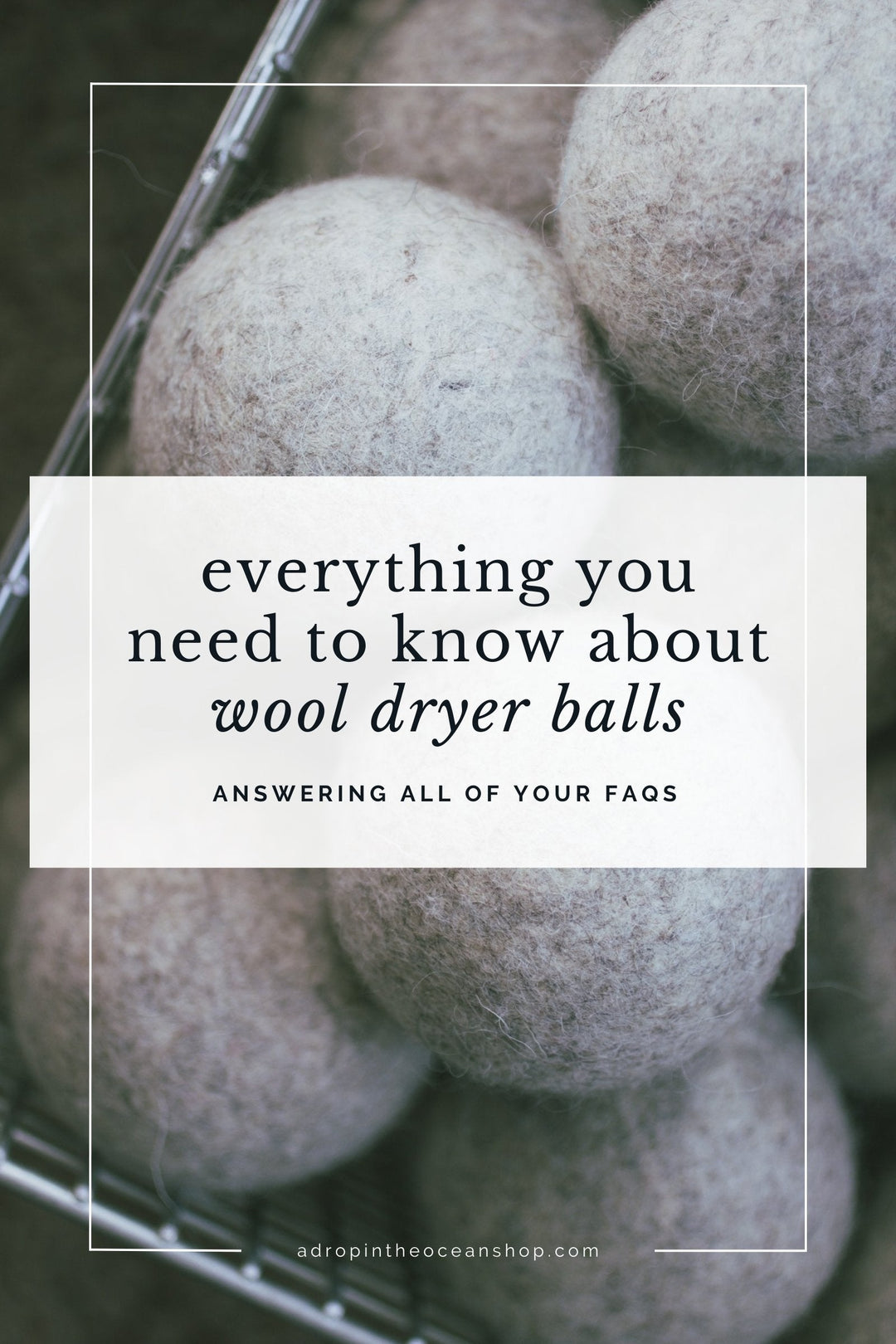
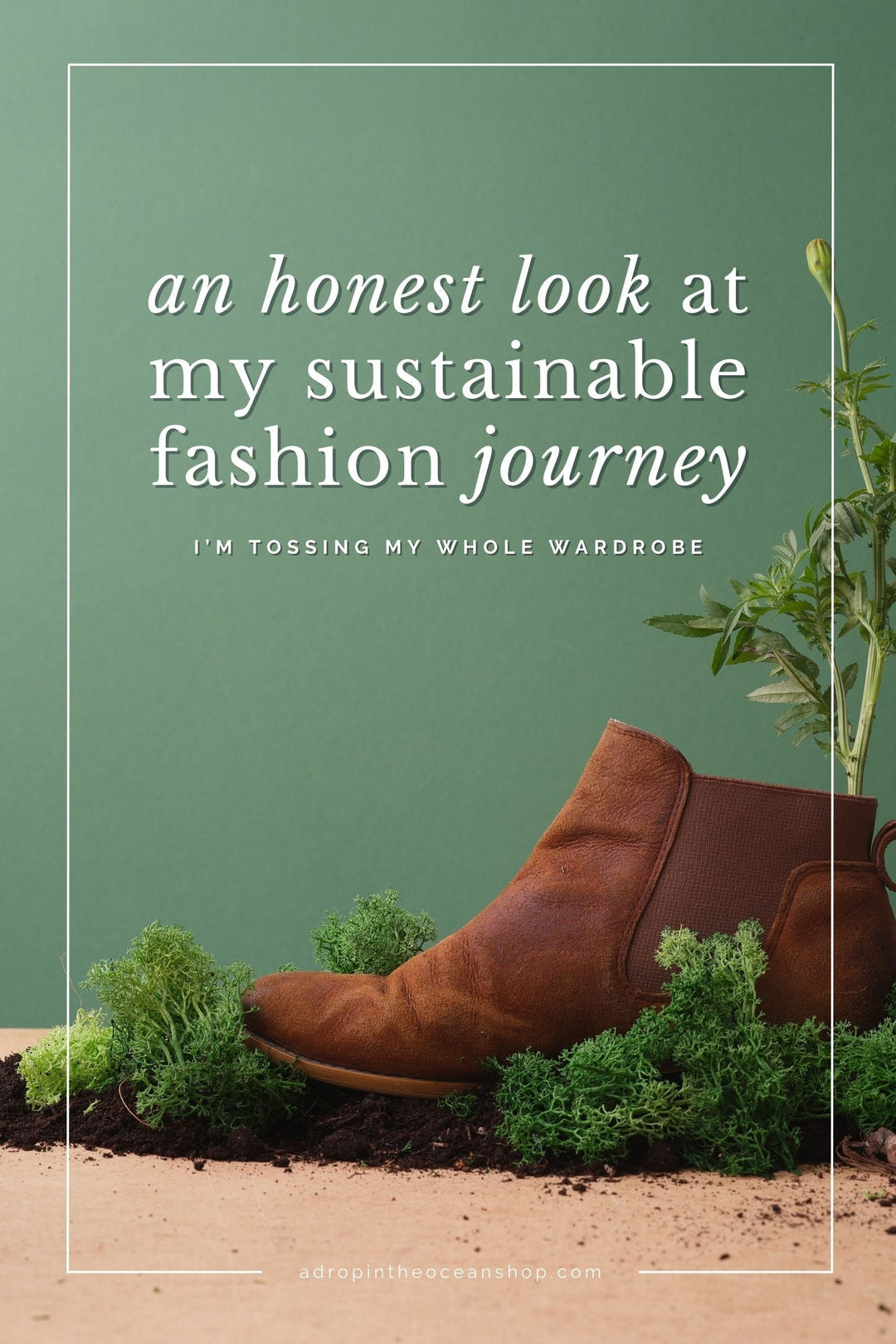
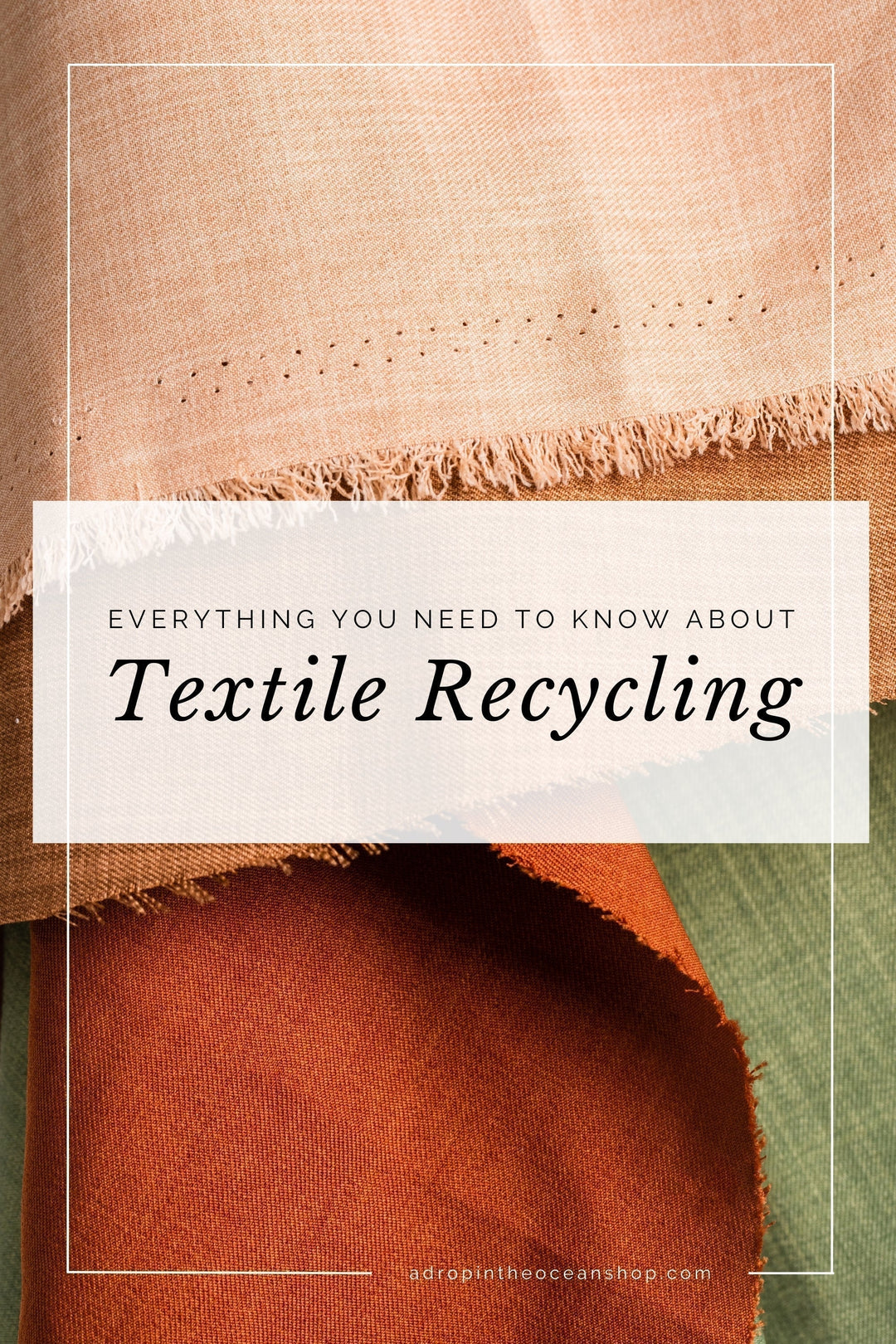
Leave a comment